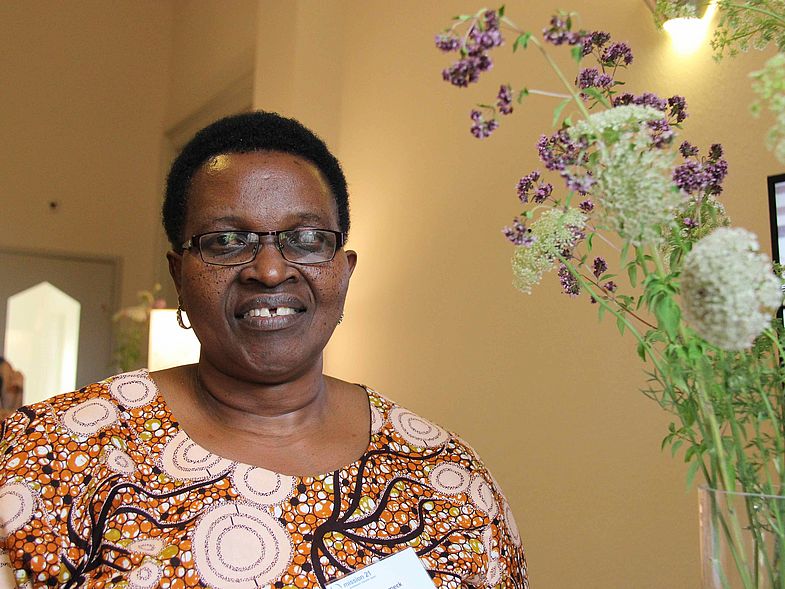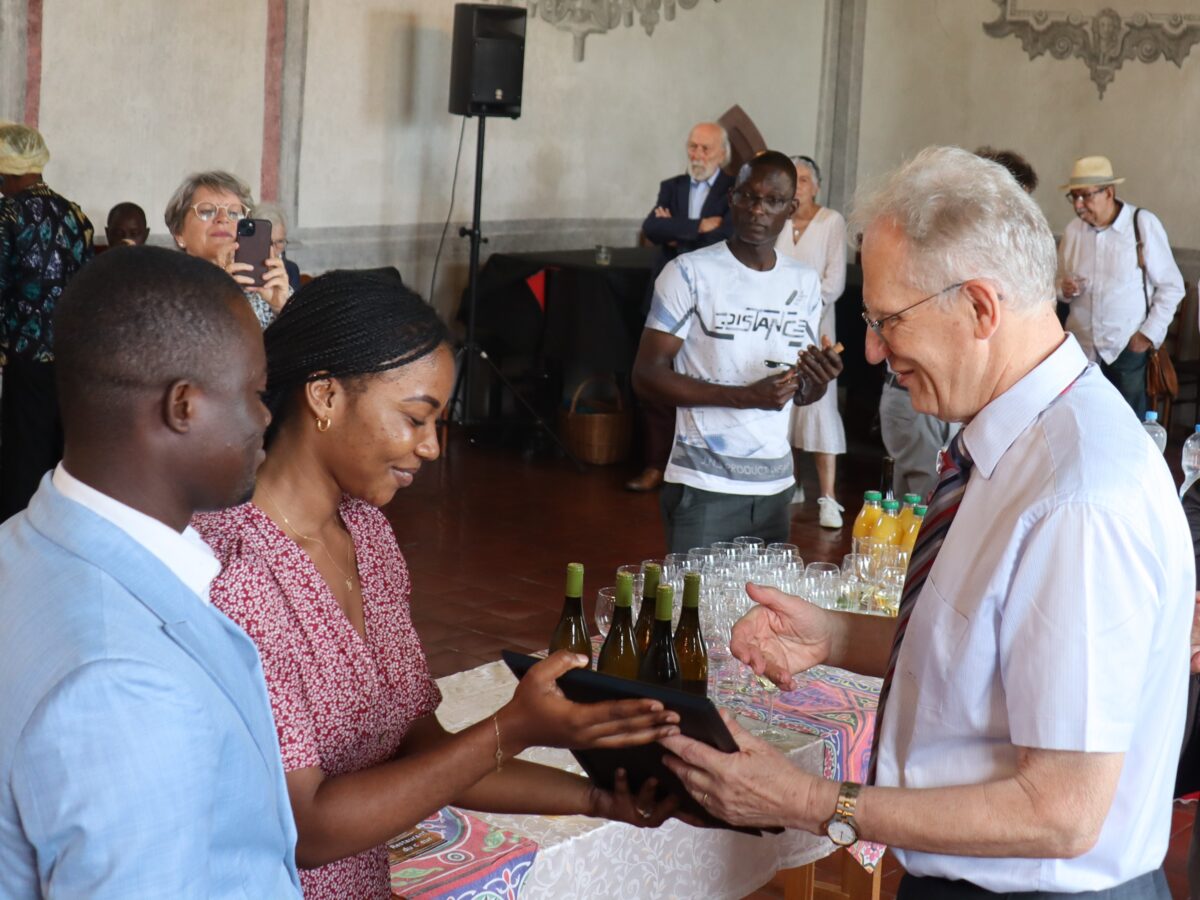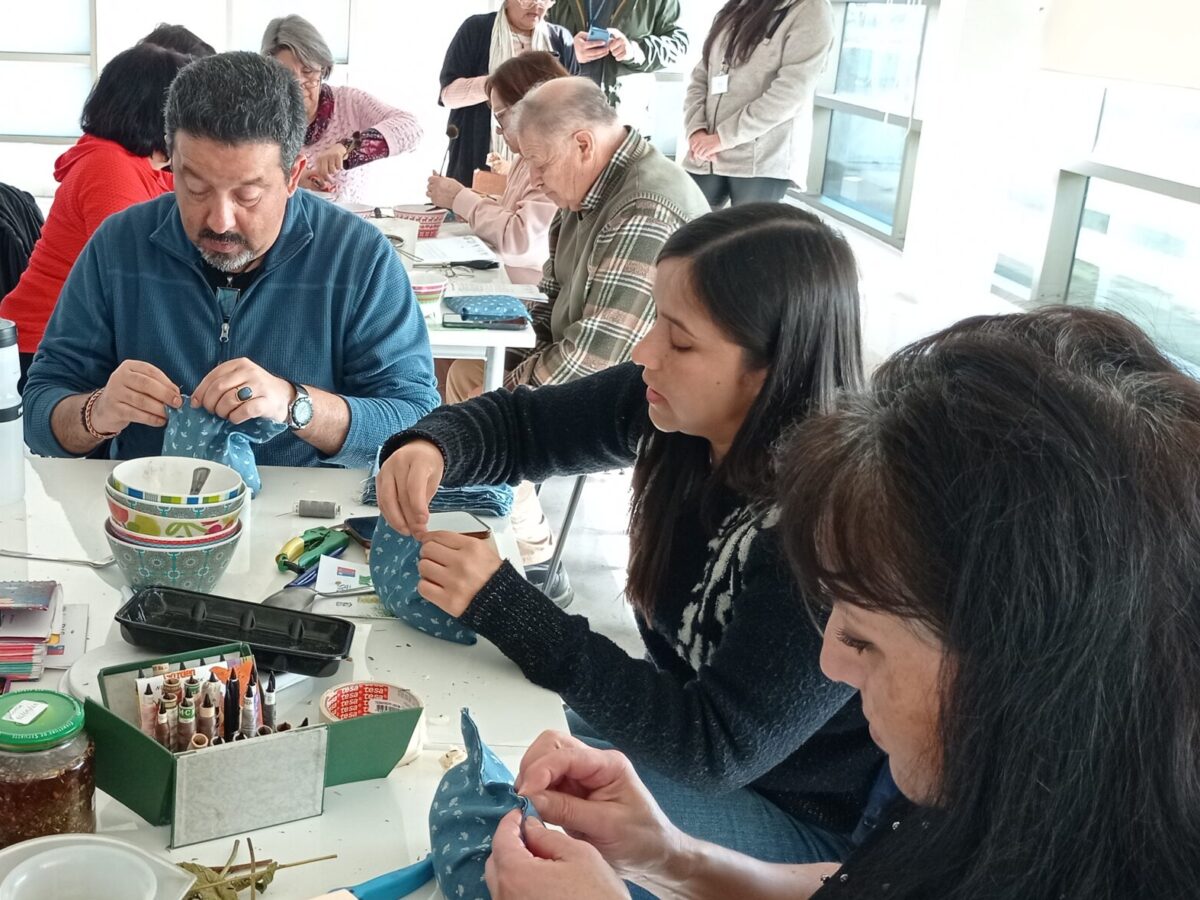Mary Kategile, what were your school years like?
I grew up in Tanzania in a village in poor circumstances. At that time, not many girls went to school, but I was able to attend elementary school in the village. But after that, I didn't move on to secondary school. Simply because I was a girl. The cultural and family expectations of me were different, I was supposed to get married. My family was too poor to send all the children to school, so they concentrated on the boys.
Today you have a university degree and are in the process of earning your doctorate. How did your educational career continue?
A few years after I finished elementary school, a government campaign was underway with the goal that all Tanzanians should learn to read and write. I was selected to participate in this program and became a teacher for adults as part of the campaign. For two years we gave lessons in different places. After that I got married, I was 17, and I became a kindergarten teacher, for that I did two more six months of training. I had children, but continued teaching, for a total of seven years.
Still without secondary education.
Yes, that's right. I caught up on this training when all seven of my children were already in the world. There were evening classes. That wasn't easy, because I already had so many other tasks and was responsible for a lot of things. But I had also learned a lot more by then. My husband, initially an engineer, was training to be a pastor. And I studied with him, attending the seminaries as a guest. Later I took on numerous tasks in the women's work of the church, but I did not feel well equipped for it. So I decided to catch up on my schooling. And when I finished, I applied for university.
And that just worked out?
I didn't get any support from the state, but my private environment supported me and I completed my bachelor's degree. This was recognized and I stayed at the college as a teacher. Later I had the chance to do my master's degree in theology in the USA. And now I am working on my doctoral thesis.
Is your biography a typical Tanzanian women's biography?
Not really. There are few who go this way. I must say it was not easy and I needed God's help. He made it possible for me to do the hard work. And I was also supported by friends sometimes.
How has the education system in Tanzania changed since you were in school?
School fees no longer have to be paid in state schools. Nevertheless, the cost of school materials exceeds the budget of many poor families. And unfortunately, the quality of school education has declined. The schools are overcrowded. In some classes, 80 to 100 children sit with one teacher. Few teachers are employed and the education is also full of challenges. There are also big differences in quality between schools in rural and urban areas in terms of learning, teaching materials and availability of information. Schools in urban areas are better equipped in this regard than those in rural areas.
According to statistics, almost two million children in Tanzania do not go to school. What are the reasons?
Partly it is financial reasons. The children lose interest and patience in school when they see that they could already earn something. They think they are just wasting their time at school. This concerns especially the boys. Many prefer to devote themselves to earning money rather than to school. Girls are often very involved in the family and take on numerous tasks there. And there are social and cultural norms that do not see schooling as an important part of girls' and women's lives. There are still populations that prefer to marry girls off at a very young age. Although there are now strict laws on this.
You once said that the education policy in Tanzania stipulates that boys and girls have the same right to education, but this is not implemented. Can you elaborate on that?
Despite the government's efforts to ensure education for all girls and boys, there are still parents who do not see the value of education for their children. It is considered normal for girls to attend only elementary school and not higher grades. This is about the power of the cultural and social norms that I just mentioned. Of course, there are families who support their daughters and allow them to get an education. But the assumption that a woman should marry and have children in any case is very entrenched. At the same time, schooling seems to be a waste of time. There are many girls attending elementary school, but their number decreases in secondary school, and there are even fewer at university.
About 30 percent of girls attend secondary school, but many drop out. According to Unesco figures, around 600,000 girls dropped out of secondary school in 2019. What are the reasons?
The number is alarming. The main reason for abortions is teenage pregnancy. Of course, there are other reasons: economic reasons, family conflicts or work at home, for example caring for younger siblings. But a big problem is the early pregnancies, or the way they are handled. Girls in Tanzania are forbidden to attend school during pregnancy and after giving birth. This is only possible at private schools, but they charge fees.
How can the situation be improved?
We advocate for girls and women. We lobby female members of parliament to demand a change in the law so that young women continue to have access to education despite pregnancy. We show girls the opportunity to attend boarding schools and support them in doing so. We also provide accommodation for girls when they attend a school that is far from their home. Important here is our network of partners, for example NGOs like Mission 21, who help finance these opportunities.
You are working on many levels to empower young women in Tanzania. Can you describe this work in more concrete terms?
We inform the girls and young women about their options and support them in finding their way. Pregnancy and dropping out of school are not the end, we have to convey that to these girls. There are, for example, vocational training courses to which they have access - among other things, these training courses are supported by Mission 21. We show alternatives and options so that the young women can take control of their lives.
So you help with training opportunities?
Yes, we arrange apprenticeships and in the joint project of Mission 21 and the Moravian Church these are also financially supported, as well as further schooling for disadvantaged children and young people. Unfortunately, we sometimes do not reach the pregnant students because they do not even dare to accept offers. Raising awareness and providing information are therefore also very important. We talk directly to the schoolgirls in the schools.
Are there sex education classes?
There are biology lessons and reproduction is also a topic there. But it is only taught in secondary school, too late in this situation. We are trying politically to get the subject of teenage pregnancies included in the curriculum.
What about access to and information about contraceptive options?
This is an important topic. Unfortunately, there is a lot of resistance from religious circles here. The prevailing opinion is that information on contraception encourages young women to become sexually active at a very young age.
What is it like for you as a pastor to speak publicly about this issue?
It is very difficult. I can inform when I speak directly to young women, but in a public situation it is very difficult.
What are the prospects for women going to university?
They have good options. They are informed about the different ways to shape their lives. But here, too, pregnancies are often the reason for dropouts; more women than men drop out of university. Here, too, we hold talks to inform and empower female students.
Are there any government activities to enable young women for university education?
No, these are all private initiatives or projects by non-governmental organizations. But we need a commitment from the authorities and leaders in religion and politics to promote the education of girls and women.
Tanzania has recently had a woman president. Are changes visible?
Yes. She is committed to education and a better life for women and girls. That gives me hope.
What are your wishes for women and girls in Tanzania?
I wish that they are strengthened and supported. That they can recognize their own value and stand up for themselves. Most women in Tanzania think they have to live for other people. It is okay to take care of others, but I wish that these women and girls would also take care of themselves. They make a huge contribution to society, they contribute to the economy and peace in the country. They are important! I wish they would realize that.
Interview: Claudia Buess (event moderator), Miriam Glass (editing)
► Video of the online event "Dialog International" with Mary Kategile
► Support the work of Mission 21 and Mary Kategile in Tanzania






